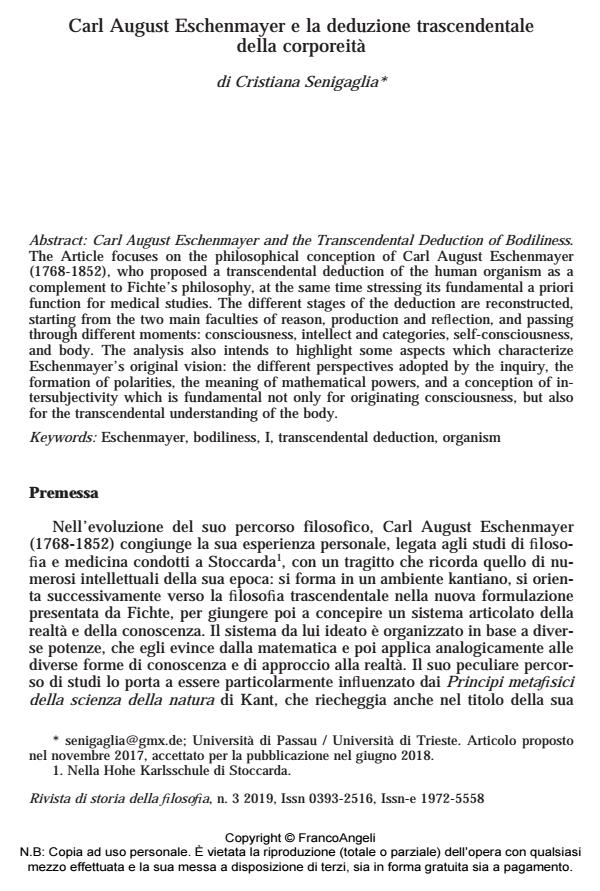Carl August Eschenmayer e la deduzione trascendentale della corporeità
Titolo Rivista RIVISTA DI STORIA DELLA FILOSOFIA
Autori/Curatori Cristiana Senigaglia
Anno di pubblicazione 2019 Fascicolo 2019/3
Lingua Italiano Numero pagine 20 P. 453-472 Dimensione file 460 KB
DOI 10.3280/SF2019-003003
Il DOI è il codice a barre della proprietà intellettuale: per saperne di più
clicca qui
Qui sotto puoi vedere in anteprima la prima pagina di questo articolo.
Se questo articolo ti interessa, lo puoi acquistare (e scaricare in formato pdf) seguendo le facili indicazioni per acquistare il download credit. Acquista Download Credits per scaricare questo Articolo in formato PDF

FrancoAngeli è membro della Publishers International Linking Association, Inc (PILA)associazione indipendente e non profit per facilitare (attraverso i servizi tecnologici implementati da CrossRef.org) l’accesso degli studiosi ai contenuti digitali nelle pubblicazioni professionali e scientifiche
Carl August Eschenmayer and the Transcendental Deduction of Bodiliness. The Article focuses on the philosophical conception of Carl August Eschenmayer (1768-1852), who proposed a transcendental deduction of the human organism as a complement to Fichte’s philosophy, at the same time stressing its fundamental a priori function for medical studies. The different stages of the deduction are reconstructed, starting from the two main faculties of reason, production and reflection, and passing through different moments: consciousness, intellect and categories, self-consciousness, and body. The analysis also intends to highlight some aspects which characterize Eschenmayer’s original vision: the different perspectives adopted by the inquiry, the formation of polarities, the meaning of mathematical powers, and a conception of intersubjectivity which is fundamental not only for originating consciousness, but also for the transcendental understanding of the body.
Parole chiave:Eschenmayer, bodiliness, I, transcendental deduction, organism
Cristiana Senigaglia, Carl August Eschenmayer e la deduzione trascendentale della corporeità in "RIVISTA DI STORIA DELLA FILOSOFIA" 3/2019, pp 453-472, DOI: 10.3280/SF2019-003003